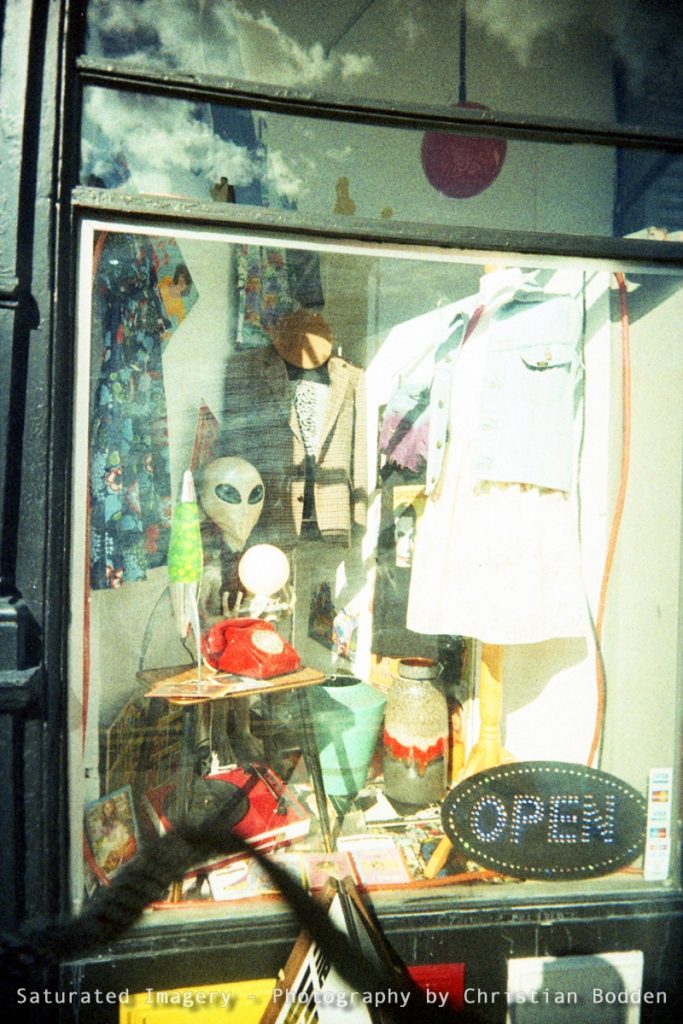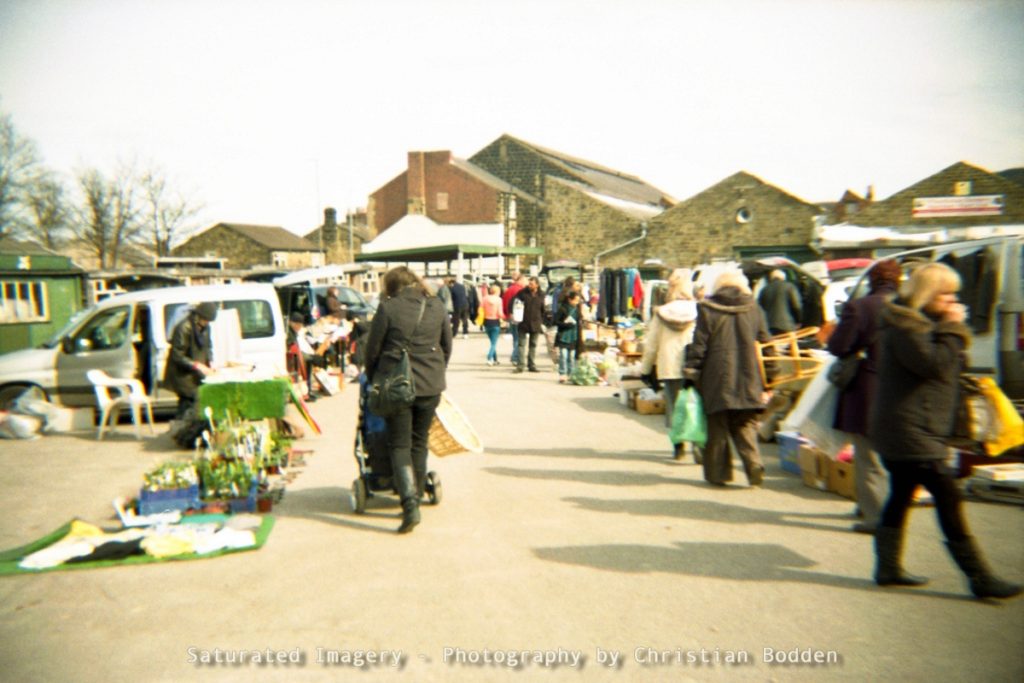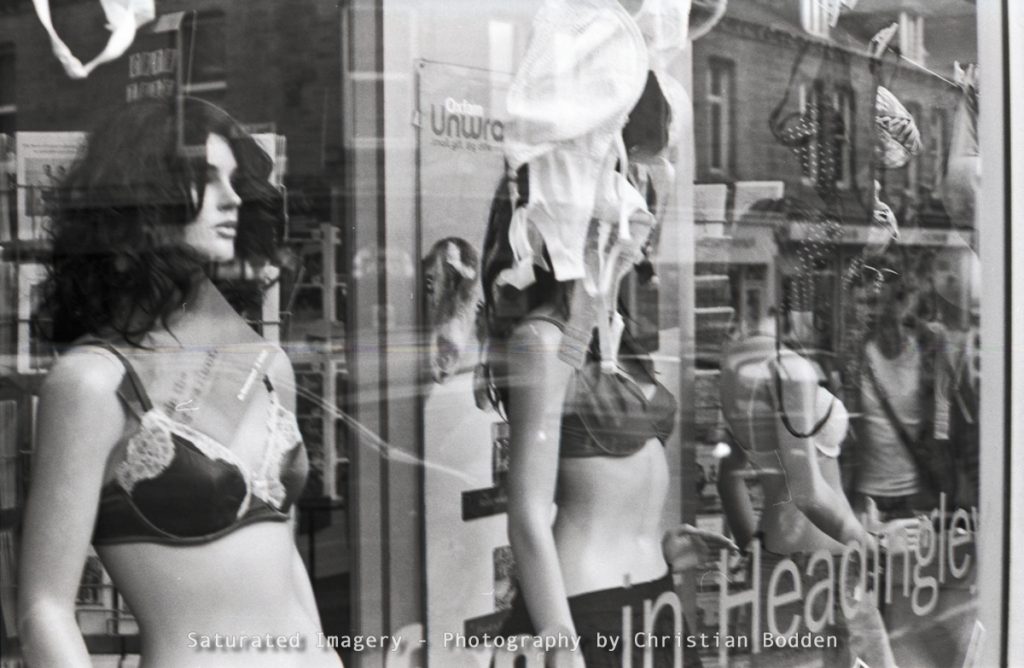How to fuel your GAS – A buying guide for second hand cameras
I have come to accept that I have GAS and I cannot control it. GAS? Gear Acquisition Syndrome. I had to put this in because it is the oldest puerile joke among photographers, but now it is out of the way I will get on with the post.
Despite my full awareness that I had miscalculated the length of the month and spent rather more money than I should have I decided to indulge my addiction a little this weekend, with some charity shopping and a car boot sale. I picked up the following exciting stuff from the charity shops:
- Olympus µ [Mju] Zoom 105 (£4) – A zoom version of the classic Mju range from 1995
- Kodak S100 EF (£1.99) a white plastic chunky retro point and shoot, guessing from the 80s.
- Yashica T4 (£3), a basic compact from around 1990, with a rather nice lens; a Multicoated 4 elements in 3 groups Carl Zeiss Tessar 35mm, f/3.5.
And at the boot sale:
- Minolta Dynax 404SI (£5), an advanced consumer SLR from the late 90s.
- Konica Z-Up 150 VP (£2), a high spec superzoom, probably late 90s.
- Goldline Sovereign AWP 2 (£1), a basic motorised point and click.
- Pentax Zoom 90 (£1.50) – A chunky zoom compact from the 1990s.
- Olympus Trip 35 (£4), the classic point and click from days gone by made famous by David Bailey.
Yes, you read that right, a working Olympus Trip for £4. I nearly passed over this. The stall was an old man with a van and a table with maybe 20 or so items of retro – typewriters, metal vases, stereo equipment and so on. Looking at this I thought that he came over as a dealer, and would have an idea of the price of these – a good quality Trip can go from around £20-40. I had a brief look and confirmed that it seemed to be working ok, but not enough that I looked like a serious collector before asking the price. I have been after adding a Trip 35 to my collection for a while and would pay standard price for one if I knew I could test it well and get a return if it didn’t work. Trip 35s have some specific issues – they are totally controlled by the selenium meter being an automatic program exposure camera. If the meter is gone (which happens with Selenium meters if they are not stored well) then the camera will not work to its full ability (and how it works is the charm of this camera). But I wouldn’t pay more than a fiver, or tenner at absolute most for one that I couldn’t test well.
And, though I didn’t realise this at the time, a Yashica T4 for £3… These can go for a hundred to a right unsuspecting hipster…
Anyway, by all reckoning I got a bargain here, which after a reseal will be lovely. But this got me thinking about a write up of how to buy an extensive collection of cameras.
How to buy
The first thing to do when buying second hand kit is to set your price. Remember first of all that an items value is not what the list price is, what it goes for on Ebay and so on, but what it is worth to you. That said, checking Ebay prices is a good way of seeing what the market value of an item is. The second part of deciding what you will pay is about where you are buying and how easily you can check it and return it if it doesn’t work. I might pay £40 for something from a dealer where I know it has been CLA’d and resealed and there is a good returns policy, but no more than £5-10 for the same item at a car boot sale, even if it seems on checking to be OK. Once you have decided your price, either for an item, or a whole days shopping then stick to it.

If you are seeking something specific read up about it. If you know how a particular camera should work, you will be better placed to work out if it does. Remember also that it is often relatively easy to find the basics via the internet on a smartphone.
So, you have found something that looks interesting. What next? Here is what I would look for:
- Give the camera a thorough visual inspection, inside and out. Dirt and muck can be cleaned off, but may indicate that it has been stored in less than ideal conditions and you may find that mould appears in the lens. Gunk inside can be a problem if it is sticky and gets in the mechanics. Look for scratches and bumps – they may not affect the operation but if you are spending a lot they again indicate that the camera has not been looked after. Check for obvious defects like loose battery doors – again it is about cost and whether you are happy to fix these up with gaffa tape.
- Now check for some specific issues. Open the battery compartment and check for corrosion. Small amounts can be scrubbed off with a stiff brush and some baking powder, but think about how easy it will be to get in there. Check the light seals. Resealing is relatively easy, but think whether the camera is worth the effort (bear in mind most old cameras do need this doing). Check for fungus in the lens. Unless this is very minor and the camera is very cheap this is usually a no-no as it will normally spread and can infect other equipment. Check the covering. This is obviously cosmetic, but if it is peeling and flaking and sticky it will become irritating very quickly.
- Now check the mechanics. First the shutter. If the camera is electronic you may need a battery for this – again if you are searching for something special you could carry a spare. Check it at all speeds if they can be selected. Often to cock the shutter you need to open the back and move the film sprocket inside. Open the back and look through as you fire the shutter. Be aware that changing the shutter speed with the shutter cocked can damage some mechanics. Check the aperture – is it functional and smooth, do the blades have any grease or muck on them. Check the advance – does it travel smoothly.
- If appropriate you might want need to check things like metering and rangefinders. If the camera is cheap and these don’t work you may decide to get it anyway – range-finders often become out of line, and light meters fail. Selenium meters (the ones that have a weird panel on the camera body are prone to this, they lose sensitivity due to corrosion on the contacts if the camera is stored in the light which means they are generating current. This can be cured, but is a pain to do. If it bothers you check the meter against a known-good meter.
If all these pass, and the price is right then you are good to go.
Where to buy
Second hand cameras crop up all over the place, so here, in roughly order of increasing cost, is a list of places were I look to appease my GAS.
Skips and Binyards
If, like me, you live in a city with lots of students you can often find a substantial amount of junk for free. In Leeds, every year on the first of July (Hyde Park Christmas) the annual student tenancies change over and huge amounts of stuff are dumped by students who have collected crap and now can’t be arsed moving it. Cameras are not common, but they do appear from time to time.
Just a word of note about this, taking from skips and bin yards is technically illegal. Items in skips belong to the skip company, and items in bins belong to the local authority. And there is often a big moral panic about ‘identity theft’ and you may be accused of trying to steal people’s personal details.
Gifts
If people know that you shoot film, they may just give you their old film cameras. Many people have the odd one lying around in a drawer somewhere. I have a few lovely vintage cameras which I got from a colleague who had them passed down from relatives and was excited to see them being used again.
Freecycle networks
These are something that are becoming increasingly a part of many large cities – they are essentially mailing lists that link people with things they want to get rid of, with people who want things. Freecycle, Ecobees, and Freegle are some of the biggest in the UK, but there are many more, often local. The problem with these is you need to be on the ball and scan them regularly and get past all the ‘my disable nan needs a computer to keep in touch with her family; it must be dual-core 2TB drive and 6GB memory’ adverts. You could place a wanted add, but often you are required to offer things first.
Car Boot Sales
Car boot sales can be a gold mine – I have often gone to my local sale and come back with a bulging bag of cameras for less than £15 – and as I said at the start of the article this is where I bought my Olympus Trip. As I explained in the story, buying at boot sales is often not about how much the item is worth, but about how much you are willing to risk if it doesn’t. Unless you, and the seller are a regular and you trust them it is likely to be very hard, if not impossible, to return something that doesn’t work, so only pay accordingly. fortunately most sellers do appreciate this and they are often just selling off junk anyway. Some dealers use boot sales, and in this case ask for their details, preferable in the form of a business card.

Be prepared to rummage through the boxes on the stalls, few sellers (unless they are specifically selling cameras or antiques etc) will think to place bog-standard cameras on prominent display. Prices do vary – some people know what they are selling and price it accordingly, some just want to clear out as much junk as possible and some like my Trip seller obviously are not sure what they have. I feel a bit guilty. Actually not that guilty. The good thing about boot sales is that you can haggle. Take lots of change, as often sellers don’t have enough float.
Charity shops
Charity shops can be a mixed bag so far as buying cameras goes. They tend to be quite good for compacts and old point and click toy camera, often at around a couple of quid, though I have seen some places asking a fiver for ‘advanced’ compacts which is really a bit on the steep side. Sometimes they will get more exciting stuff in, and here the price can vary wildly, often depending on whether any of the volunteers knows anything about cameras. A few charity lines have jumped wholeheartedly on the ‘retro’ bandwagon, and these can be quite good for finding the more common classic vintage cameras (such as Canon AE-1s, Olympus Trips, Praktica SLRs or Kodak Brownies), but watch out for them asking full list price for copies which are damaged or in a shoddy condition.

Check their returns policy – I would never take back a point and shoot that I have paid a couple of quid for to a charity shop if it didn’t work, but if I am spending more I would want some protection. If they are selling an item as tested then consumer protection applies and they must accept a return if it doesn’t work, but if they are selling it ‘sold as seen’ this may be harder to argue. If it is not stated I would argue that the former applies, but it is not watertight and if in doubt ask. In general charity shops get offended if you try and haggle, but I have occasionally argued that I would only pay the price they are asking if I can return the item if it does not work.
Flea-Markets, Junk Stalls, Antique shops
These can be good places for vintage stuff, and do occasionally have some more obscure items. Flea markets are likely to be cheaper, and maybe lower quality and of course may not operate from a fixed property so returns can be difficult. Antique shops may have more expensive and rarer items, but other things crop up too.
Private Sales
Sites like Gumtree, local papers and so on will occasionally turn up items of interest. You have the advantage here of being able to inspect the items, but although you have the persons details and address they may not be at all bothered about any kind of returns policy. The key thing here is the check, check and check again to ensure the item works as you hope.
Cash Converters
Places like this do not tend to be amazing for film cameras, but they do show up from time to time. There are broadly two types of this shop – the first are run by people who simply make a business out of the second hand trade, and are often knowledgeable in general about what they sell. The second are big chains who act as pawn-brokers and money lenders. These latter are often deeply connected with the sub-prime finance market and hence could be difficult if things go wrong. Expect to pay a little over the odds in general.
Ebay
Ebay is the place to look if you want to find something specific, as it is huge and global and has tools for setting up searches and notifications. Ebay really is a mixed blessing. If you are careful you can get some real bargains and rare kit. But it is too easy to get swept up into bidding wars, buy things without really looking at them and so on.
Also, you do not get the view the item before buying it, so you only have the sellers description to go on. While Ebay does have a system for disputes, as it is a private auction you are not fully protected by consumer protection laws and getting refunds can be tricky. Sellers may also rag your feedback if you kick up a fuss, so you have to think if it is worth it.
Read the description really carefully. Ebay will take action if things are not as described, but be aware your lens which is ‘free from fungis’ may be riddled with fungus and still meet the description. It has also been commented that Ebay seem to say that they will not treat minor scratches as a problem on an item described as ‘good condition’ and have not been drawn on how they would see a scratch on a lens surface. Caveat Emptor.A good seller will list the items faults clearly, make it clear they will accept returns and what their policy is. Beware of those that say they don’t know anything about the item and are selling it for a mate. Many of these may be totally legit, but it leaves a lot of room for error…
The other problem with Ebay is that which is inherent in an auction: If you see something, bid on it and go away and forget about it this drives up the price. To bid well, you need to watch the item and bid your highest price at the last minute. You can get software to do this, but it is a faff, and of course Ebay doesn’t like this because they want the price as high as possible to get their cut.
Second Hand Camera Dealers
For the best service, usually with a decent policy on returns a reputable dealer is the way to go. They should be knowledgeable about the items, talk through any faults or limitations and generally be helpful. If you are buying in person you can inspect the goods, and though cash may get you a better price, you can often pay by credit or debit card and have the protection they offer. Many also operate online, but check customer reviews (not just the testimonials on the site). Camera fairs also fit into this category.
So there you go. a bit of advice on buying. Take it to heart, but don’t end up as obsessed as me!